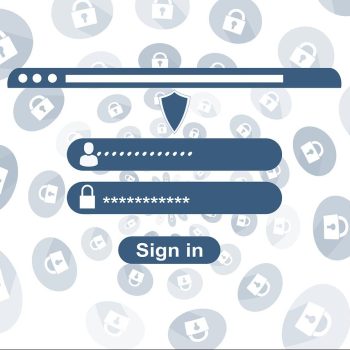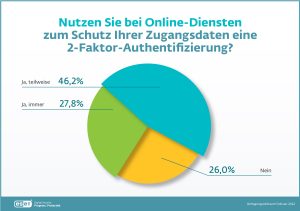
ESET Spring 2022 survey shows positive development - one in four respondents uses password managers and one in three relies on two-factor authentication. The trend in private use also promises more security awareness in smaller companies.
Almost half of all Internet users now use a password manager (25,5 percent) or use an analog notebook to write down their access data (21,5 percent). These are the amazing results of the representative ESET Spring 2022 survey of 1.000 internet users. The digitization of everyday life has received an enormous boost with the corona pandemic (ESET study "Quo Vadis, companies?", 2020) . Whether shopping, banking or texting friends: nowadays everything is done via the Internet. Users leave footprints and data is generated. If this information falls into the wrong hands, it can easily be misused for identity theft. The ESET security experts explain what to look out for when digital spring cleaning.
“Password security is on people's minds”
“Germany has caught up. Password security is on the minds of many users. Nevertheless, my tip is: Leave the digital comfort zone you are used to! With just a few clicks, your online accounts are protected from cyber thieves. For example, activating two-factor authentication effectively protects the access data from thieves. Even if these fall into the wrong hands, they cannot be misused,” advises Thomas Uhlemann, ESET Security Specialist. “Data and apps also accumulate on most PCs, smartphones and tablets over the course of a year. It pays to declutter regularly. The firmware, operating system and all applications should also be checked and updated.”
Three out of four respondents use 2FA at least partially
Almost 28 percent of the Internet users surveyed rely on two-factor authentication (2FA) for every online service. This allows users to create another factor of verification in addition to the password. This can be a confirmation code on another device, for example an SMS on the smartphone. A fingerprint on a sensor or a USB token can also be used for identification. Around 46 percent protect their access data at least partially with another factor in addition to the password. 26 percent do not use it at all.
One in four uses a password manager

One in four Internet users uses a password manager to securely store access data and always have it ready. 21,5 percent of those surveyed use a notebook to manage login data. Around 15 percent save the passwords in the browser. Pleasing: Only 5,8 percent of those surveyed use identical passwords for multiple accounts to simplify matters.
Every fourth smartphone user uses no or weak security functions
Almost twelve percent do not use any security functions to unlock their smartphone. If the device falls into the wrong hands, all the data stored on it is freely available. Twelve percent of those surveyed also use the rather insecure function of unlock patterns. At least one PIN is used by over 41 percent. Around 27 percent rely on biometric functions such as fingerprints or face recognition.
For the representative online safety survey, ESET surveyed 1.000 internet users of different ages in February 2022. The online survey was carried out by the market research institute Omniquest on behalf of the European IT security company.
More at ESET.com
About ESET ESET is a European company with headquarters in Bratislava (Slovakia). ESET has been developing award-winning security software since 1987 that has already helped over 100 million users enjoy secure technology. The broad portfolio of security products covers all common platforms and offers companies and consumers worldwide the perfect balance between performance and proactive protection. The company has a global sales network in over 180 countries and branches in Jena, San Diego, Singapore and Buenos Aires. For more information, visit www.eset.de or follow us on LinkedIn, Facebook and Twitter.
